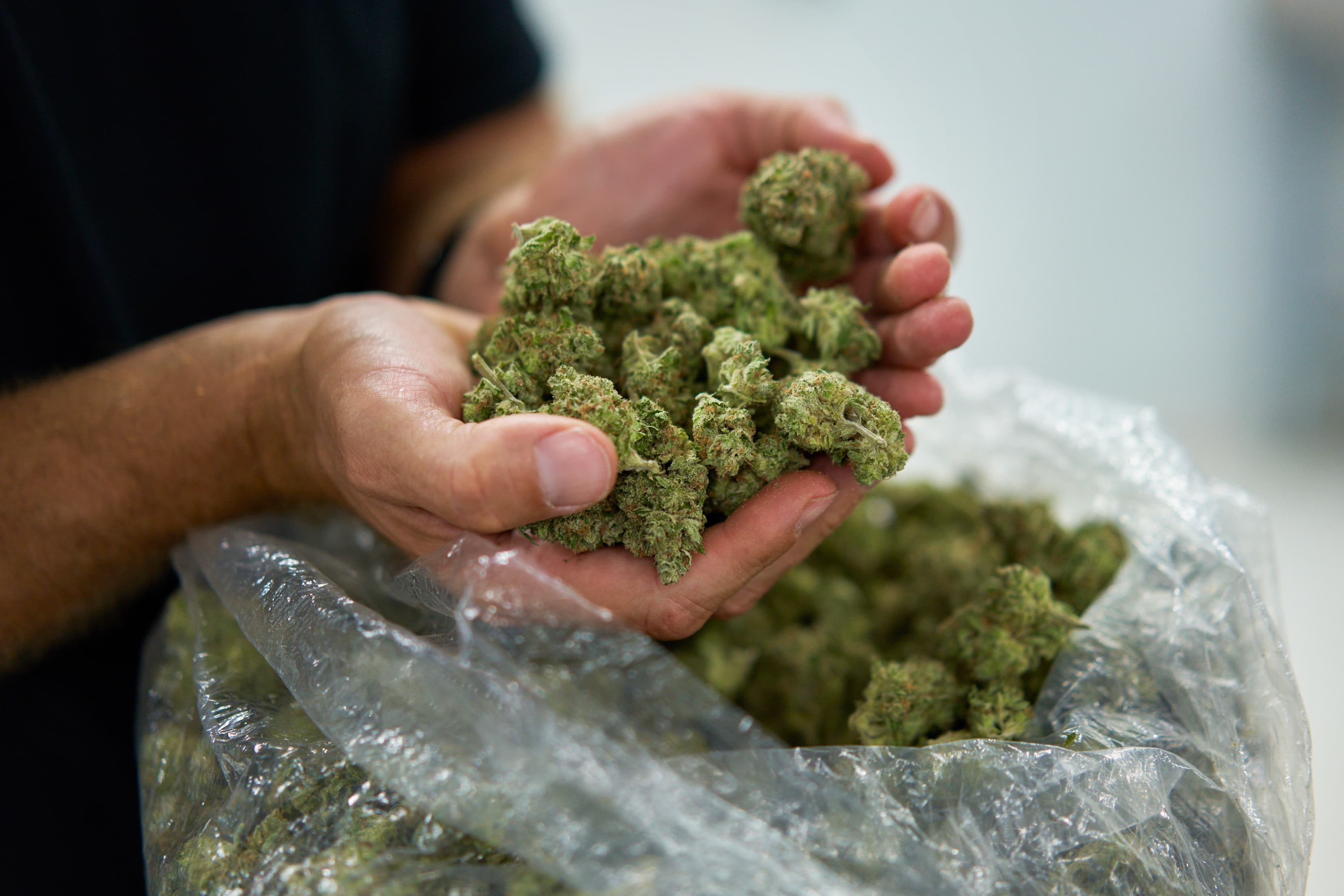
LOS ANGELES - The fate of a bill that would allow state-chartered banks and credit unions to provide services to California's marijuana businesses could be determined Thursday when a key hearing is held on the legislation.
The proposed legislation, state Senate Bill 51, is designed to help pot retailers and other marijuana firms that have been shut out from the traditional banking system. The measure would allow private banks or credit unions to apply for a limited purpose state charter so they can provide depository services to licensed cannabis businesses.
California's legal marijuana industry is struggling to compete with black market competitors and is facing challenges that include banking access and high taxes. Last week, California Gov. Gavin Newsom's new state budget plan slashed cannabis tax revenue projections by $223 million.
Marijuana businesses, including pot shops, are forced to deal predominantly in cash due to continued federal banking restrictions that make it nearly impossible for them to have bank accounts with federally chartered financial institutions. There's also an effort underway at the federal level to pass legislation that would allow banks to serve cannabis-related businesses without the risk of getting prosecuted.
"Banks are scared to death and they just don't want the expense and the trauma of exposing themselves," said Gavin Kogan, chairman and co-founder of Grupo Flor, a cannabis retail and cultivation company based in Salinas, California. "We appreciate the state's efforts here on the banking bill but it may take congressional action to finally solve this."
On Monday, the state Senate Appropriations Committee sent SB 51 to the so-called suspense file, a common procedure for state bills with a fiscal impact. However, the action also sets the stage for a hearing Thursday when committee members could determine the fate of the proposed measure.
A state cannabis panel last year issued a report on cannabis banking and stated that "large amounts of cash make cannabis businesses, their employees, and their customers targets of violent crime." It also said "banking relationships can help law enforcement officials and regulators distinguish legal cannabis businesses from illegal market operators."
"As policymakers, we have a duty to further the will of the voters while protecting the public safety of our constituents," California Senate Majority Leader Robert Hertzberg said last month when introducing SB 51. "This measure is by no means the ultimate solution, but it's just one small step in the right direction to get some of this money off the streets and into bank accounts."
Last year, the Democrat authored Senate Bill 930 to create cannabis banks but it didn't pass the legislature and cost concerns has been cited as one of the reasons because it would require hiring new state workers. Then again, some industry observers suggest lawmakers opposed to cannabis sales may be using cost as an excuse.
A briefing document for SB 51 assumes 12 new cannabis banks or credit unions would be created, which would require the state to hire personnel such as examiners and incur costs of about $2 million per year.
Hertzberg's new bill would set up special checks by pot businesses as a way to pay state and local taxes, fees and rent. The current taxes imposed on the state's cannabis industry were part of Proposition 64, the adult-use legalization measure passed by California voters in November 2016.
Meantime, the governor's May budget revision issued last week is forecasting California's cannabis excise taxes will generate $288 million in revenues in the current fiscal year ending in June, below the $355 million that was projected back in January in the Democratic governor's budget plan. Also, the new budget projects $359 million in cannabis taxes in the next fiscal year, below the $514 million estimated four months ago.
Back in 2016, California's Legislative Analyst's Office forecast the marijuana industry's taxes could surpass $1 billion annually after adult use legalization.
California started selling legal marijuana in 2018, but some observers have blamed the aggressive state tax rates and over regulation for continuing underground pot sales. Some industry participants also blamed the lack of legal dispensaries for the shortfall in revenue because of the state law that allows local communities to ban cannabis businesses.
There's a state bill that would give legal marijuana businesses a tax break to help them thrive and better compete with the underground market.
Assembly Bill 286 was introduced in January in the state legislature and would temporarily cut state excise taxes for legal marijuana retailers from 15% to 11% and also suspend cultivation taxes altogether through 2022. The legislation is scheduled to be heard this week in the Assembly's Committee on Appropriations.
"I think 11% is still high, but we'll take all the help we can get," said cannabis entrepreneur Kogan. "On top of the state, we're getting taxes by local governments so it makes it difficult to create products and a new industry. It also puts consumers in a situation where they have to choose whether to buy it at legal dispensaries or the black market."
from Top News & Analysis https://cnb.cx/2YyQLcVvia IFTTT
No comments:
Post a Comment